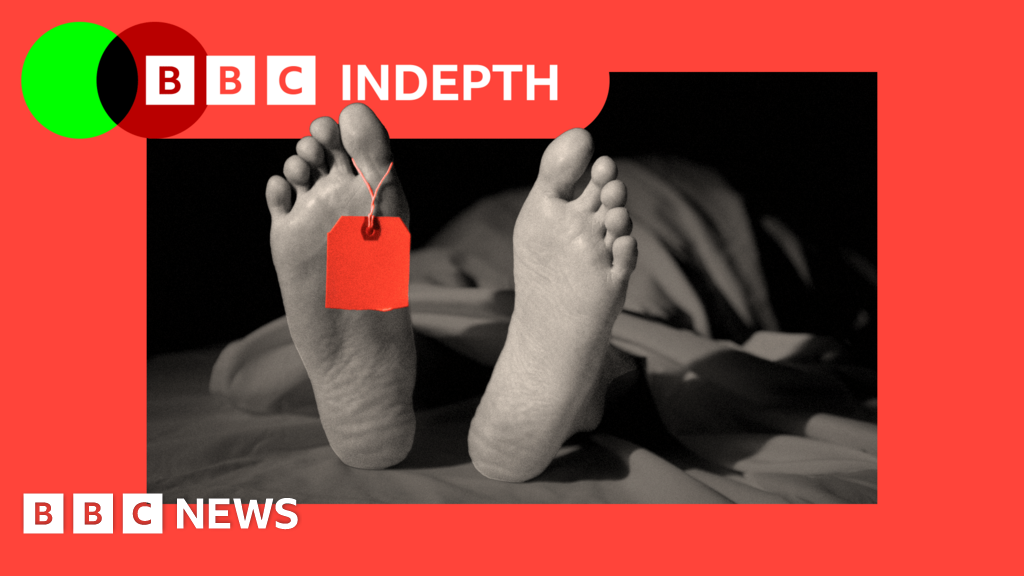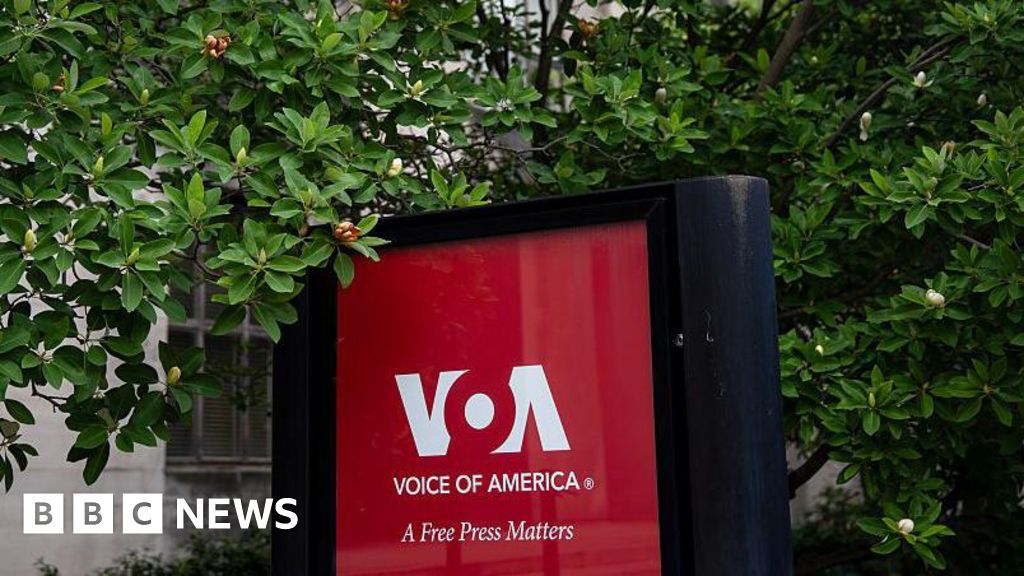The Cure for What Ails You: The Missing Link in Your Diet |
Paul Beatty
In the past few years many of us have come to distrust the medical establishment, and especially big pharma. And yet still the majority of people turn to their doctor when something goes wrong.
But one man has been fighting an information war for over 20 years to show us that there are very viable alternatives, and that the key to many of the chronic health problems we suffer today, is found in our diet. Or rather in something essential that is missing from our diet.
Most of us have heard that fish oils are good for us. But this is incomplete information. The balance of oils is essential, and the pharmaceutical industry, with their supplements and medications, has once again gotten that balance wrong, often causing more problems than they are solving.
Paul Beatty is not a doctor, but he does hold 3 degrees and he understands the metabolic effects of these oils on our health on a much deeper level than anyone I have ever interviewed.
He has helped people to recover from cancer, diabetes and many other metabolic diseases simply by adding the right balance of oils to their diet. And this has proven to be highly effective even in those of us already eating a natural foods diet.
In this interview you will learn the secret that Paul discovered years ago. He’s been cancelled and ignored, because the cure is a simple supplement that anyone can get without a prescription.
LINKS:
https://www.naturalcancerrecovery.com
Buy EZtrek (currently U.S. only): https://store.goodforhealth.org/
(0:00 - 1:24) In the past few years, many of us have come to distrust the medical establishment, and especially Big Pharma. And yet, still, the majority of people turn to their doctor when something goes wrong. But one man has been fighting an information war for over 20 years to show us that there are very viable alternatives, and that the key to many of the chronic health problems we suffer today is found in our diet, or rather, in something essential that is missing from our diet. Most of us have heard that fish oils are good for us, but this is incomplete information. The balance of oils is essential, and the pharmaceutical industry with their supplements and medications has once again gotten that balance wrong, often causing more problems than they are solving. Paul Beatty is not a doctor, but he does hold three degrees, and he understands the metabolic effects of these oils on our health on a much deeper level than anyone I have ever interviewed. He has helped people to recover from cancer, diabetes, and many other metabolic diseases simply by adding the right balance of oils to their diet. And this has proven to be highly effective, even in those of us already eating a natural foods diet. In this interview, you will learn the secret that Paul discovered years ago. (1:25 - 1:43) He's been canceled and ignored, because the cure is a simple supplement that anyone can get without a prescription. Paul, it's a pleasure to have you on the show. Great to be here, Will. (1:44 - 2:16) Now, I invited you to this interview because I've been following your work for a while now. You have a website called naturalcancerrecovery.com. We're going to talk about cancer, what really causes it, and the fact that it's, well, I'm not even going to try to summarize because it's it's it's quite a morass to get into, but we're going to talk about some other things as well. But I wanted to start with the cancer, because in the notes that you sent to me, you made an assertion that cancer is caused, at its most basic, by a lack of oxygen to the mitochondria. (2:16 - 6:14) So would you please explain what's causing that lack of oxygen and why it leads to cancer? Okay, basically, if we view the body of the ability of our bloodstream to transfer oxygen to the cell, then the cell itself has these little engines in it called mitochondria. And the membranes on this mitochondria, there's a number of them, but the key on them is that they may be your omega-6, this is called the chiralopin, but the omega-6 fatty acid, syslinolic, in the proper form to exchange oxygen into the mitochondria to produce energy, ATP. Now, when that energy weans because of lack of oxygen, then what happens is it's like a carburetor on a car that starts to close. The engine gets sluggish, there's lots of fatigue. The brain takes about 50% of the oxygen that we inhale and take in every day to run. So the brain gets very foggy. And of course, this is why a wonderful research, and this won the Nobel Prize for a gentleman named Dr. Otto Warburg, and this is summarized very great in a book called The Hidden Story of Cancer by Brian Peskin. People can read that, but this was all withheld as knowledge. And MIT and other places have tried to disprove the theory, and no one has been able to disprove it. And there's actually more proof coming out all the time that it is absolutely correct that the primary cause of cancer is a deprivation of oxygen in the range of 30 to 35%. So it's the respiration of the cell, deprivation of oxygen, and the body then turns to utilizing basically glucose or sugar to try and stay operative. And that's not the best fuel, especially if it's processed sugars. Right. So in essence, what's happening is that due to environmental dietary factors that we're going to get into, there's not enough omega-6 getting into the mitochondria. Without that omega-6, the mitochondria can't metabolize the oxygen, and therefore it's starving the cell of oxygen. Correct. Correct. So now that we know that, let's get into the causes for it, because as I just said, it's dietary, it's environmental, it's epigenetics, there's a lot of stuff going on there. So I'm going to let you run with that, Paul, and explain what's going on metabolically that's leading to that lack of omega-6. Okay. First and foremost, there are only two essential fatty acids. This is referred to as omega-6 and omega-3. Omega-9 is not an essential fatty acid. It can be made, think of 6 plus 3. So what we hear about... That's right. I'm going to jump in because I know that there's a lot of people who don't know what we mean by essential. When we talk about essential fatty acids, essential amino acids, your body can't make them and it can't store them. So you have to get them from your diet. Correct. Very important point. So we have to get these proper fats for the mitochondria to produce oxygen. And the problem has been that the medical profession and most people have gone down a giant rabbit hole. And that giant rabbit hole is that, oh, essential fats, that's omega-3, that's fish oil. And that is the farthest thing from the truth. (6:14 - 6:38) One needs to just say, how did people live in the mountains and never eat a fish? And in many cases, live longer than those who ate lots of fish. Or you get certain parts of the world where all they do is eat fish. And they have more cancer earlier than people who don't eat all that fish. (6:39 - 7:16) So what people need to understand is that everything in life is a balance and moderation. And so we need to understand that 95% of the fatty acids that are essential for us are omega-6. Even walnuts that they push as omega-3 has five to six times the omega-6 in it that it does three. All your nuts, all your seeds, everything. So people have been misled that omega-3s are more important than omega-6s. And nothing could be farther from the truth. (7:17 - 10:39) The combative part of this is that omega-3s, in effect, overdosing and too much of them, they impede the ability to process omega-6s. So the key becomes balance of these two very minimal amounts. And to show you just how important it is to understand this, the food supply, like I say, is virtually almost all, and this is a cis form, almost all when it's unprocessed in this cis form. And the body naturally will have a preference, a preference of omega-3 to omega-6 because there's virtually no omega-3 in our food supply other than things like flax, which nobody would cook with, or maybe some chia. But very few things have parent, these are the initial starting point from your diet, parent omega-3s. If you load up with a lot of omega-3s and especially derivatives, this is EPA, DHA, these are your derivatives, then what you're going to do is you're going to shut down your omega-6 pathway, which is so much more important. Do you really think that the creator put on earth a whole bunch of omega-6 fats in our food supply because he wanted to make us all sick? Come on, people. So the key here is to understand that omega-6 is so much more important and so much more plentiful in our food supply. You just don't want to apply heat, light, and oxygen to it because it alters. But linoleic acid, the parent omega-6 in the cis form, only has two double bonds. What does that mean? Well, that means it has some stability. It takes X amount of oxidation to break that down. The more double bonds, the easier it oxidizes. Which then causes free radical damage. So the farther you go down the metabolic process of these chains, omega-6 and 3, remembering they're competing, then the easier it is for these things to turn bad real quick from heat, light, and oxygen. So let's go to EPA, DHA. They have five and six double bonds. They turn rancid. Would you, if you were out in BC and you caught a fish, a salmon, and you brought it in and you put it in a pan with some butter and you build a fire and you have it right there, it is life-giving. Would you eat it if you left it on your dock for an hour and a half in the sunlight? No. Why? That's how fast it oxidizes. So the key is if you want unprocessed, these fat, you don't need a lot of them. They will make up 25 to 33% of your cell membrane on average. 50% of your cell membrane should be bricks and mortar. (10:39 - 12:38) It's called saturated fat with no double bonds. The thing you were told caused heart disease makes up 50% of the average cell membrane in the body. So people need to understand that these things are the doors and windows. And when you install crooked doors and windows, you let garbage into your cell and garbage doesn't come out. So oxidized and adulterated oils of the omega-6 and 3, this is like installing doors and windows that don't close and open properly. You have set up the terrain to be poisoned. So ironically, any cell membrane is to be poisoned. So ironically, those who are taking these omega-3 supplements for their health are actually sabotaging it because it's shutting down the omega-6 pathways. Correct. Correct. We need such small amount of the omega-3s and we retain it. And the only places you'll hear them speak about where we have any amount of it is in the retina and the brain. But we have just as much, if you can imagine, we have just as much arachidonic acid, omega-6 derivative in the brain, which is where all your inflammation is. So the key becomes, you want to go back and first of all, the fats that you need in your diet, you don't want to overdo it because you put stress on your liver, but you want saturated fat to be the only thing that you actually cook with. Period. Even monounsaturates like olive oil. That's okay. Basically, that is neutral. (12:38 - 15:01) That is not an essential fat that you have to have from your diet. And the key to understand all these things is your monounsaturates, even though they're a polyunsaturate, which means many, they got three double bonds. So they're going to oxidize. Basically, these fats, the more double bonds, the more they're going to break down quicker and cause you free radical damage, which of course is what's going on in aging people and what's causing fatigue and what's causing, you know, eventually the breakdown, even on the red blood cells, we see this, then, you know, taking proper balanced fatty acids will restore the poppiness and the donut like shape of the red blood cells. You can talk to any, and believe me, this, I've been doing this for 20 years. You can talk to anybody that's taking the red blood cells under the microscopes, these high powered microscopes and showing that restoration of that that individual red blood cell is so critical because if those red blood cells aren't shaped like a donut and they're all broken up, like we're seeing as a result of what's been going on, then what happens is they can't squeeze into the small capillary. So you end up with cold hands, cold feet, cold nose. You end up with a brain that's foggy. They're not exchanging oxygen in those cells and those cells are dying and you are aging rapidly. I hope that answers it. It does. So now we've talked about what's causing it and specifically here cancer, we're gonna get to some other things later. And so now, and the fact that we need very, very little omega-3s, but we need more omega-6, which is what's gonna help the mitochondria and the cells to process the oxygen and avoid that oxygen deprivation. It's also gonna plump up the red cells and get those flowing through the minor capillaries. So how do we fix this? Because of course the pharmaceutical industry is definitely not the answer. Okay. The way to fix it is obviously be aware of the things that are impairing this pathway. That's number one. (15:02 - 17:42) What we can do though is we can do something called dietary manipulation of eicosanoids. Now eicosanoids are made from these fats on the cell membrane and these are your signaling molecules that regulate everything to do with the cell. They're like hormones, but they don't travel in your bloodstream any distance like testosterone or estrogen or whatever. These communicate with the cells around that cell. And believe it or not, get ready, hold on, to show you the complexity, we can produce up to 2000 of these per second per cell. We are a biochemical electrical machine that is unheralded. The estimate on the brain is that we're producing up to 10,000 per second per cell of these communicators. Okay. So we can manipulate this to compensate for the inability to produce some of these messaging. And we can do that with a certain balance of derivatives that are past the enzymes that are being blocked by all the bad things in our society that we're doing to ourselves. And those kinds of things are obviously toxic load. Aging. Doing this just so your audience can understand the power. Trials were published in 1996 and using GLA and only from Evening Primrose, and I guess I should mention the brand because he deserves the recognition, David Horrobin and Efamol Research, that they showed that three capsules a day for 84 days, your skin was 9.1 to 12.2 years younger, according to every measurement known to man. That was published in the top dermatological journals. But what they don't tell you is this, this is going into every membrane. So all your tissues are becoming 9.1 to 12.2 years younger. So the key... You have to clarify this is the Primrose oil we're talking about. Yes, this is the Primrose oil. Now we want to balance that with a small amount, very small, tiny amount of omega-3. Obviously, you're going to need a little more omega-3 if you decide you want to live in an igloo and die in your 50s of other diseases other than heart disease. (17:42 - 19:48) The whole thing with the studies from the Dutch and the Eskimos was all fraud, just like the Framingham study was fraud. So people need to understand that you relative to your environment, need to eat what your ancestors ate, and you need to eat locally as much as possible, because we've evolved with those foods and they affect your metabolism. And they affect generations of your metabolism. It's like being a vegan. We don't see a lot of problems for people who are vegans where their grandparents and their grandparents were vegans. But someone who's a meat eater and then decides to become a vegan overnight, we see so much cancer, we see so much mental problems and so forth. So you can... And it's so different than dog, is it right? You have a dog, I have a dog, they're man's best friend, but you just can't switch a dog to what they should be eating, which is raw, they're based on the wool, from kibble. But I ask people all the time, how healthy would you be if you ate kibble, aka crap dinner, every day of the week? So your dog will get sick if you switch them over immediately. Your dog will be very sick for a while. You have to transition food very slowly so the body can adjust. Okay. It's called tolerance. So I hope that answers. I'm not sure I got to sometimes get carried away for 30 years of knowledge stuck in this old head. Okay. So we've got a solution and that's the primrose oil with a small amount of omega-3. Stop taking large amounts of omega-3. I think it would follow from that, stop eating large amounts of fish because your body, your brain is going to store that omega-3, it's just keep building up. (19:49 - 22:24) So we've gotten to this point. Now, I want to bring into this also healthy diet because obviously that's essential. I mean, if you're eating a processed foods diet and you're doing this stuff, it's going to have limited effect because you've got this horrible dietary foundation that's messing up your metabolism. So let's talk about the healthy diet. Okay. The first thing you need to realize is that the big enemy, and this happened in the sixties, the first enemy in the sixties that really started to change all of this was the industrial complex going out and telling mothers to have this instant formula. But it's much better than breast milk because the largest source of these fatty acids is produced in a healthy mother for her baby. In other words, if she's producing these fats, she has no problem, none breastfeeding. None. I have taken dozens and dozens of ladies over the years who were having trouble after giving birth, having breastfeeding, given them evening primrose oil, and in two to three days, they are producing enough milk for two babies. Isn't it interesting that in 1991, the Japanese, the Japanese signed with Horvath and started putting evening primrose oil, the GLA, in an instant formula called Snow Brand. It only got to 30% market share because a lot of people, it was much more expensive. GLA is expensive too. It's a crop that's very difficult to grow. So anyways, it's very important that a mother use this. Now, what do they tell you about evening primrose because in Europe and other places with respect to pregnancy, many of these women have been using evening primrose oil for years, for years, for all kinds of women's issues. But if you look at the so-called science that isn't, it'll say, oh, don't use this because it'll bring on the baby. It'll bring on the baby when you want. So in other words, let's say you're getting to the, you're taking two or three capsules, then in the third trimester year, you need a little bit more omega-3 because the brain's developing. And I've done this with lots of mothers. And so eventually what happens is you get down to the point where your due date is. (22:26 - 23:25) Well, now you take four or five capsules for a couple of days in a row of evening primrose. You could drive a Mack truck out. There's no cesarean needed. Boom. So it's all in the application and understanding the metabolic pathway. So that, you know, the bottom line on that one is that that's where it started, the corruptness with this. Then along came the Framington study and the fast food study, all the fast food stuff and everything else. But even McDonald's until about what, 1971 was using saturated fat to cope with. And once they switched to these seed oils, with the worst of all being Canada's contribution to the world, Canada oil, better known as canola oil, better known as rapeseed oil, better known as the number one lubricant for the machinery of World War II. (23:26 - 24:44) But we got to find a home for it and we'll genetically alter it and change it so that we can reduce the uric acid in rapeseed oil, which is poisonous to man and beast. But there's still some in it trace amounts. So you want something that is going to help dumb you down. Just make sure you get the number one oil being sold and used in every restaurant, in every fast food place. It's called canola oil. And so these oils are all bad for you when they're exposed to heat, light, and oxygen, and especially cooking. And of course, the way you get it is to freeze it or it's fried. I'd like to follow a better organization and I'll get your opinion on it, but because people like simple rules. And of course, we have all these various options for cooking oils. And what I tell people is, if it's made from a grain, don't use it. If it's made from seeds, it's probably good for you. Well, you have to be careful there because seed oils, when they're heated, they alter from adulterated to unadulterated or from unadulterated to adulterated. (24:44 - 27:07) I tend to use avocado oil. Well, avocado is mono. Okay. That's a mono unsaturated. So that's like olive oil. They're much better because they have a higher smoke point. Yes. But they're still not the best because if you think how your grandparents all cook with, what did they cook with? Well, they used to, you know, when the meat was clean, they would take the pork fat or the, you know, the beef fat or whatever, pour it in a can, it sat on the kitchen counter, right? And then they would spoon it out the next day to use or the day after or whatever, and it wouldn't be altered. And that is the best fat to cook with because it will not oxidize at all. Whereas- Best and thundered animal fat. Yep. And then if somebody was wanting to use a commercial off the store shelf oil, what would you recommend would be the best one? Coconut. Okay. Unprocessed coconut, which they've used in Asia and all over forever, but it's got to be unprocessed because again, what is it? It's a saturated fat. There's no double bonds that have to be oxidized. So these are by far the best. And of course, coconut is very wonderful because of caprylic and lauric acid in it being an antifungal. And of course, my association with William Crook back in the nineties, when we appeared on a number of TV shows together, he was the father of the yeast connection. So he wrote the yeast connection and chronic fatigue syndrome, kind enough to put me in there for a few pages. And of course, that's what tipped me off with the CDC and what was going on with Robert Gallo and so forth down there. He was from Tennessee. Wonderful old man. Anyways. So saturated fat is what our ancestry cooked with and what a lot of parts of Europe still cook with because it doesn't alter the molecule. So you don't create a crooked door and window with it. That's it. I'm not saying that olive oil is bad, but the olive oil, even avocado oil, they're much better if you use them at the end of a cooking process to sort of saute something with at a lower temperature or to pour it over for flavor. (27:08 - 28:08) But most people, you know, well, most people, they go to the grocery store, they buy these cheaper olive oils. I mean, 70% of these are cut with canola oil or soybean oil or whatever. I mean, the mafia out of Italy has control of a huge part of the olive oil market. And people need to be aware that less is more, but you want quality. Quality is everything. Okay. So now we've talked about everything that's led us up to this point. We've gotten through the cancer. We've got what really causes it, the omega-3, the omega-6, the primrose oil, what oils to use, what oils not to use. So what I'd like to do now is let's transition into talking about other issues, not just cancer, because of course, we've got things like diabetes, we've got hypertension, we've got, well, let's just talk about chronic inflammation and all the problems that that causes.










